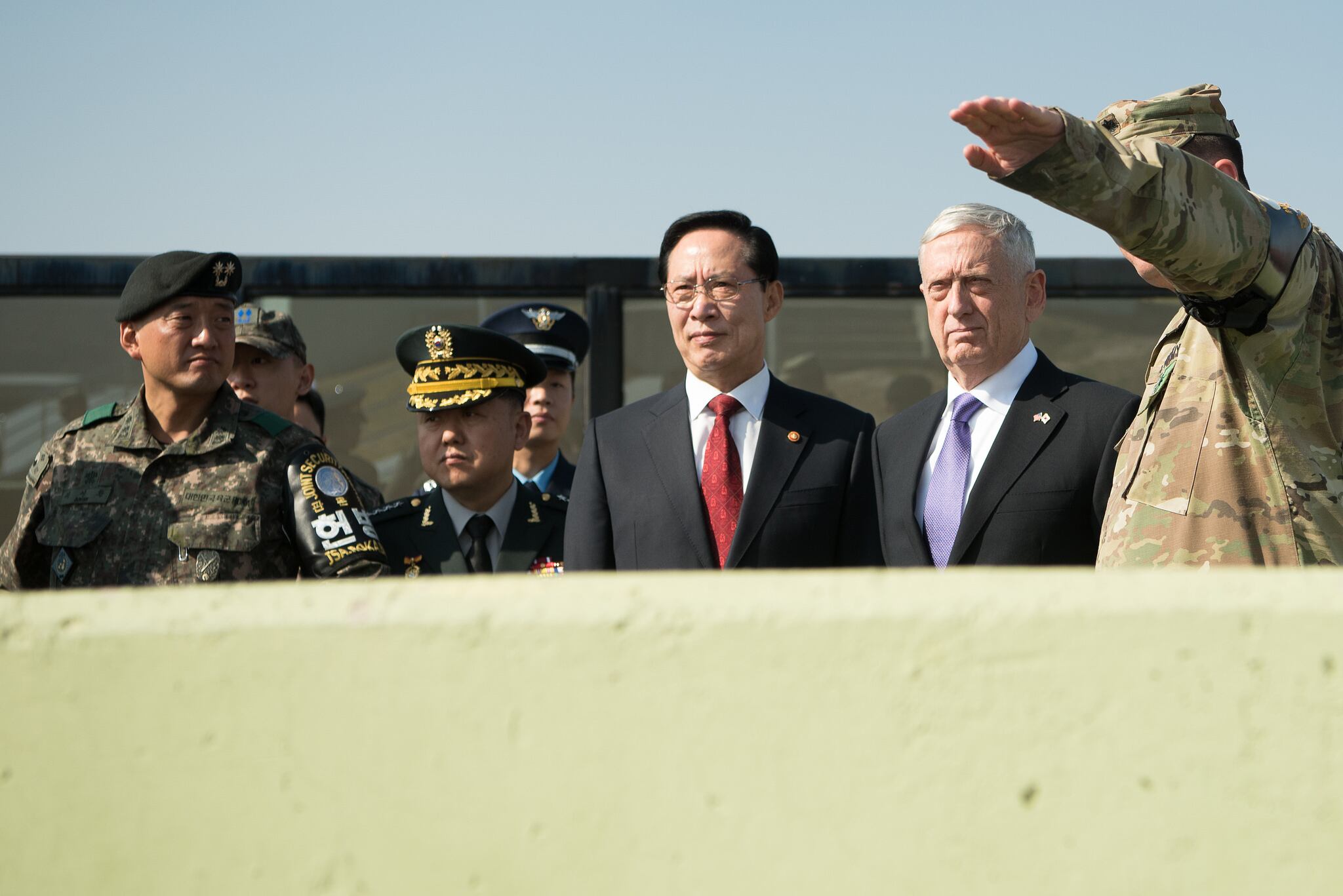SEOUL, South Korea — Defense Secretary Jim Mattis thanked U.S. and Korean troops for standing watch after a visit to the Demilitarized Zone Friday, saying their presence was what gave resolve to political leaders working to get North Korea to cease its nuclear program.
“When generals and secretaries of defense and ministers of defense are done talking, it rides on your young shoulders to make this alliance work,” Mattis told the U.S. and Korean troops assembled. “And stand together with one another. And remember a lot of Koreans, a lot of Americans died together fighting, [and] that’s a legacy you carry on,” he said, according to a pool report.
Mattis, Chairman of the Joint Chiefs Gen. Joseph Dunford and other top military leaders are in Seoul amid escalated threats by North Korea to detonate a second hydrogen bomb, this time potentially over the Pacific Ocean.
The U.S. has said that it will not allow North Korea to become a nuclear power, but, so far, economic sanctions from the international community and diplomatic pressure have not stopped the regime from continuing to develop more advanced ballistic missiles and conduct nuclear tests.
During two days of talks with their defense counterparts, Mattis and Dunford also worked on several South Korean missile defense issues in advance of a visit next month by Secretary of State Rex Tillerson and President Donald Trump.
“We’re doing everything we can to solve this diplomatically, everything we can. But, ultimately, our diplomats have to be backed up by strong soldiers, sailors, airmen and Marines,” Mattis told the troops.

Mattis also took a few questions while he was there. He was asked whether the U.S. would send additional ships to the Pacific to ease the strain on 7th Fleet.
The Navy lost guided missile destroyers McCain and Fitzgerald to collisions earlier this year. Investigations following the collisions revealed the constant tasking those 7th Fleet crews faced, which often left no time for training or critical crew certifications. Mattis said the Navy was conducting a study to determine whether additional ships or some other solution would address the strain.
Chief of Naval Operations Adm. John Richardson is “looking at the conditions on the western Pacific,” Mattis said. “But right now we’re still in the problem definition phase, we’ve got to really define the problem, because otherwise we’re liable to start solving it, and we solve the wrong thing,” he said.
Mattis was also asked whether the military would expand what tours qualified for accompanied status for troops sent to South Korea. He deferred to each service to make that determination.
Mattis said he favored having families in South Korea because he thought it increased the interactions and bonds Americans and Koreans have, but said “ it’s up to each service how many they can afford to bring out with all the other demands on them.”
Tara Copp is a Pentagon correspondent for the Associated Press. She was previously Pentagon bureau chief for Sightline Media Group.





